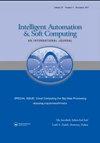基于工业物联网框架的ML模型改进汽车工业产品
IF 2
4区 计算机科学
Q2 Computer Science
引用次数: 9
摘要
在汽车行业,多个预测性维护单元在每个生产过程的幕后运行,以支持重要的产品开发,特别是在配件制造商(am)之间。因此,他们希望通过为配件提供100%的质量保证,与汽车制造商保持积极的关系。这只有在他们实施有效的预期策略,优先考虑产品开发前后的质量控制时才能实现。为此,许多传感器设备在生产区域相互连接,以收集从机器连续接收的操作数据(人力、粘度和力),并发送到后端计算机进行控制操作和预测分析。因此,有大量的数据可以进一步处理,以获得有关设备加工速度和生产效率的准确信息。然而,为预测性维护的数据驱动决策支持提取基本格式的细节是有问题的。因此,建立了一种有效的基于机器学习(ML)方法的预测性维护方法。它对混合机器学习(HML)模型产生了影响,该模型混合了监督学习和无监督学习。它有助于提前预测故障和生产线偏差,防止制造单元关闭。提出的预测方法已经在早期异常检测、生产线精度和机械效率方面进行了测试,并与其他现有的基于机器学习的预测维护方法进行了比较。本文章由计算机程序翻译,如有差异,请以英文原文为准。
IIoT Framework Based ML Model to Improve Automobile Industry Product
In the automotive industry, multiple predictive maintenance units run behind the scenes in every production process to support significant product development, particularly among Accessories Manufacturers (AMs). As a result, they wish to maintain a positive relationship with vehicle manufacturers by providing 100 percent quality assurances for accessories. This is only achievable if they implement an effective anticipatory strategy that prioritizes quality control before and after product development. To do this, many sensors devices are interconnected in the production area to collect operational data (humanity, viscosity, and force) continuously received from machines and sent to backend computers for control operations and predictive analysis. As a result, there is a vast volume of data that may be processed further to obtain accurate information on equipment processing speed and production efficiency. However, extracting details in the essential format for data-driven decision support for predictive maintenance is problematic. As a result, an effective predictive maintenance approach based on Machine Learning (ML) methods is established. It has an impact on the Hybrid Machine Learning (HML) model, which blends supervised and unsupervised learning. It helps to forecast breakdowns and production line deviations ahead of time, preventing the manufacturing unit from shutting down. The proposed predictive methodology has been tested in terms of earlier anomaly detection, production line accuracy & machinery efficiency and compared with other existing ML based predictive maintenance approaches.
求助全文
通过发布文献求助,成功后即可免费获取论文全文。
去求助
来源期刊

Intelligent Automation and Soft Computing
工程技术-计算机:人工智能
CiteScore
3.50
自引率
10.00%
发文量
429
审稿时长
10.8 months
期刊介绍:
An International Journal seeks to provide a common forum for the dissemination of accurate results about the world of intelligent automation, artificial intelligence, computer science, control, intelligent data science, modeling and systems engineering. It is intended that the articles published in the journal will encompass both the short and the long term effects of soft computing and other related fields such as robotics, control, computer, vision, speech recognition, pattern recognition, data mining, big data, data analytics, machine intelligence, cyber security and deep learning. It further hopes it will address the existing and emerging relationships between automation, systems engineering, system of systems engineering and soft computing. The journal will publish original and survey papers on artificial intelligence, intelligent automation and computer engineering with an emphasis on current and potential applications of soft computing. It will have a broad interest in all engineering disciplines, computer science, and related technological fields such as medicine, biology operations research, technology management, agriculture and information technology.
 求助内容:
求助内容: 应助结果提醒方式:
应助结果提醒方式:


